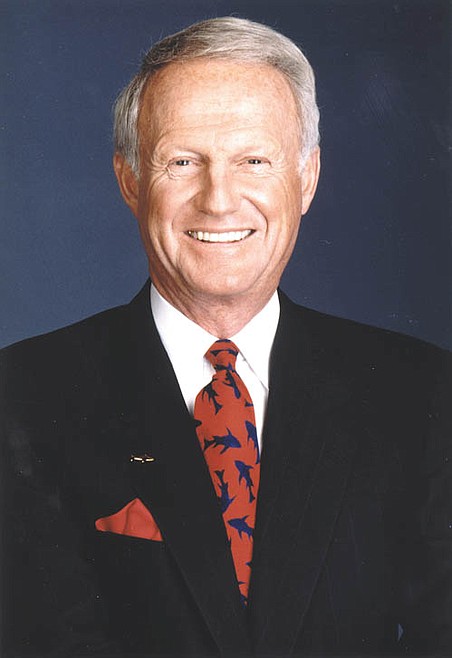The plus side of mistakes
A college basketball coach was reflecting on his team’s 115-57 loss during his postgame conference and said, “I think the whole game hinged on a single call.”
A sportswriter asked, “Which one was that?”
The coach said, “The one I made last year scheduling the game.”
The value of learning from mistakes cannot be overstated. In my experience, mistakes are indeed valuable learning opportunities. Dealing with the consequences of a mistake can improve your ability to navigate challenges and find creative solutions.
Mistakes are the natural byproduct of trying new things, pushing boundaries and innovating. It is important to remember that if you are not making mistakes, you might not be taking enough risks. And without risks, progress can be stifled. By making mistakes, you learn to evaluate risks more effectively, which can lead to better decision-making in the future. Plus, understanding where you went wrong helps you avoid similar pitfalls moving forward.
Mistakes are a form of feedback. They tell you what doesn’t work and provide a unique opportunity to tweak your approach. Mistakes often teach us more than success does. They highlight our weaknesses, allowing us to address them directly.
Taking responsibility for your mistakes is crucial because when you own up to your mistakes, you demonstrate integrity and gain respect from others. It builds character and shows you are willing to take accountability for your actions. Try to fix the mistake, not the blame.
Learning from mistakes requires reflection. After a mistake, it is important to take a step back, analyze what happened and plan how to avoid similar mistakes in the future.
Learning to bounce back from mistakes strengthens your resilience, an invaluable trait in both life and business.
Mistakes can be a source of innovation because when things don’t go as planned, they can lead to a new idea or a better way of doing things. A mistake can reveal flaws in your processes, prompting necessary changes to improve efficiency and effectiveness.
Sharing mistakes with your team can lead to collective learning and prevent others from making the same error. Learn from the mistakes of others. You can never live long enough to make them all yourself. You can’t make the same mistake twice — the second time you make it, it’s no longer a mistake; it’s a choice.
Remember, it is not the mistake that defines you, rather how you handle the mistake. By being honest, taking responsibility and following up with corrective action, you turn a mistake into a stepping stone for success. And always learn from them. If you find yourself repeating the same mistake, it is time to pause and deeply understand why this is happening.
Mistakes are the tuition you pay for success. Embrace them, learn from them and use them as a catalyst to propel you to greater heights.
“You make mistakes. Mistakes don’t make you,” according to Maxwell Maltz, a cosmetic surgeon and author of one of my favorite books, “Psycho-Cybernetics.”
I think that sums it up in a nutshell. If you let your mistakes hound you, your likelihood of recovering from them will forever be limited. It’s been said that if you want to succeed big, you must fail big. It sounds counterintuitive, but it is so true. You learn that failure isn’t permanent, and even if success comes in small doses afterward, you have turned the corner and can be bold enough to try again.
Failure isn’t fatal. Mistakes have the power to turn you into something better than you were before.
Here's a final example to illustrate my point. An avid angler drove to northern Minnesota last winter to do a little ice fishing. While attempting to drill a hole in the ice, he heard a voice from above declare, “There aren’t any fish in there!”
The man moved his gear to another spot and began drilling. Again, a voice from above said, “There aren’t any fish in there.”
The man dropped his gear, looked to the heavens, and asked, “Is that God speaking?”
A voice replied, “No, I’m the ice rink manager."
Mackay’s Moral: Embrace your mistakes as opportunities to learn, grow and move forward with more wisdom.
• • •
Harvey Mackay is the author of the New York Times bestseller "Swim With the Sharks Without Being Eaten Alive." He can be reached through his website, www.harveymackay.com, by emailing harvey@mackay.com or by writing him at MackayMitchell Envelope Co., 2100 Elm St. SE, Minneapolis, MN 55414.

